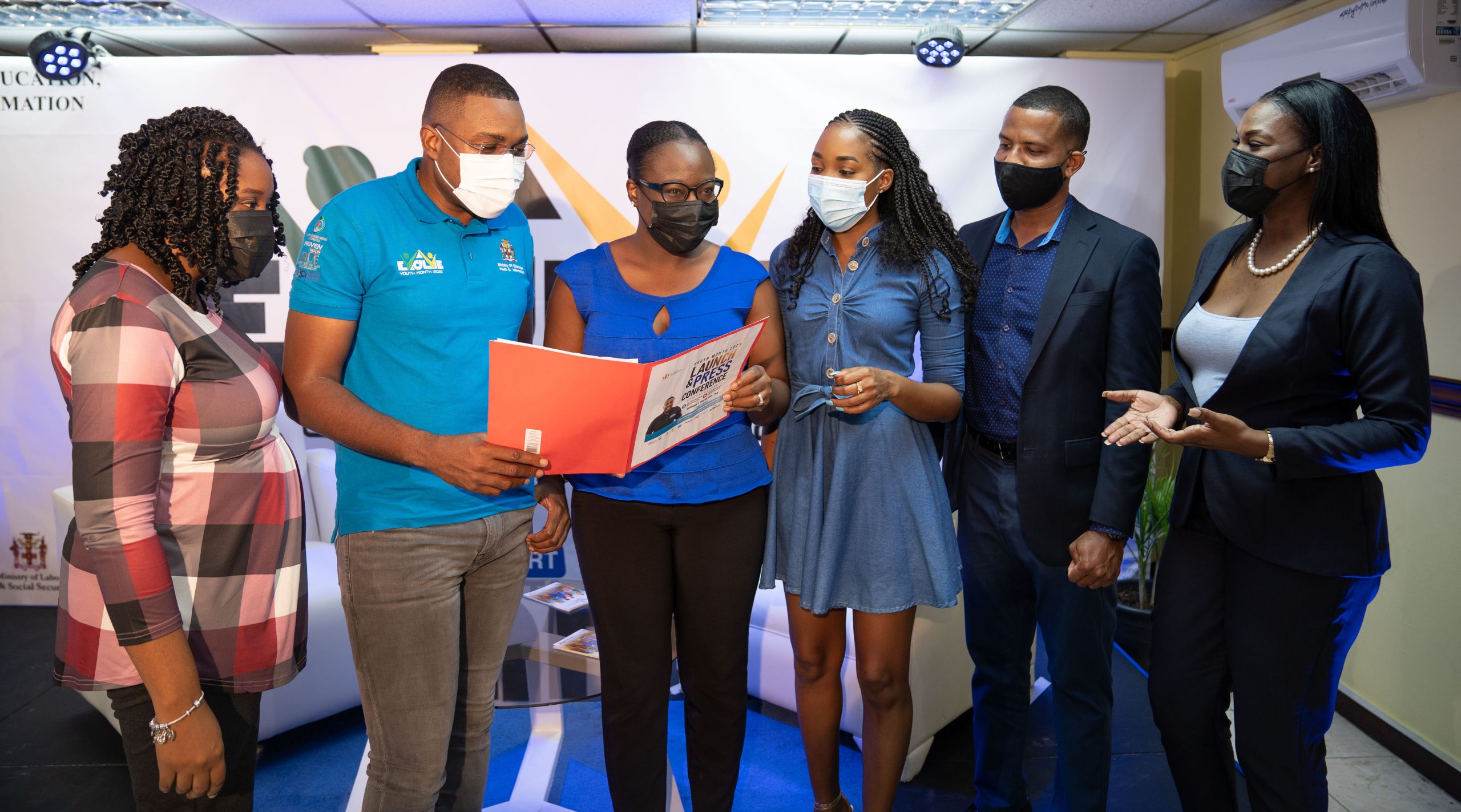The Ministry of Education, Youth and Information officially launched National Youth Month 2021 under the theme ‘Evolve’ on Monday. This comes after a virtual National Youth Month Church Service held on Sunday.
Every year, National Youth Month is observed in November. It seeks to celebrate youths through a variety of month-long activities aimed at recognising, engaging, and empowering Jamaican youth.
This is done with the assistance of key stakeholders from the corporate and public sectors and is coordinated by the Youth and Adolescents Policy Division.
The goal is to increase youth participation in sociopolitical, economic, cultural, and spiritual activities. It also aims to recognise outstanding young people and their contributions to society, as well as to showcase the best of Jamaican youth’s capabilities and creativity.
Youths are being challenged this year, under the theme ‘Evolve’, to make headway in meeting their developmental needs while dealing with the impact of the COVID-19 pandemic. The theme represents a call to action for young people to rebrand and revamp their strategies while leveraging their platforms and opportunities to ‘evolve’ in business, academic pursuits, and health and mental wellness as they strive to be the best versions of themselves.
In his remarks, Robert Morgan, minister of state in the Ministry of Education, Youth and Information, stated that youths are a segment of the population that he is most passionate about, and that he is delighted to be honouring youngsters’ successes by putting them in the spotlight for others to join in commending them.
“Despite tremendous adversity, our young persons have stayed the course and have excelled in academics, sports, among others, proving their agency as despite their circumstances they have mobilised themselves and resources to assist their communities,” said Morgan.
CRITICAL SERVICES
While recognising the achievements of youngsters both locally and internationally, Morgan said he believes that much more needs to be done to ensure that all youths have meaningful and equitable access to education and training, as well as other critical services and opportunities.
“It is our duty as a country, as a community and as individuals to ensure that we provide the positive and nurturing environment that will allow our youth to evolve into individuals of greater self-awareness, self-confidence, pride of self and community and become beacons of positive change no matter where in the world they find themselves,” said Morgan.
POSITIVE CHANGE
In what he described as a beginning of “the slow process towards positive change”, Morgan said he wishes for “all hands on deck” to aid in this change and offer youths the best opportunities for success as they “weather any storms that may arise”.
Along with the activities being held is the National Youth Policy Creative Challenge Competition. This has been introduced as one of the primary activities of Youth Month.
The competition gives Jamaicans aged 15 to 29 years the opportunity to explain why at least one of the six National Youth Policy (NYP) goals is important to the youth population, as well as what role they can play in assisting the Government in achieving the policy’s intended goal.
Entries will be accepted from November 1, 2021 to January 28, 2022 in the form of written, artistic or video entry submissions.
The winning creative pieces will be featured on the Youth Innovation Centres website, social media, print material and other mediums. In total, six first-place winners will be selected per NYP goal.
The outlined NYP goals and priorities are to improve access to quality education at all levels and to provide opportunities for vocational training. To increase the proportion of youths who have access to sexual, reproductive, and mental health services, as well as the percentage of youths who have access to job and entrepreneurship opportunities. It also outlines the goal of increasing youth participation in national and political decision-making processes, decreasing the number of at-risk and vulnerable youths, with an overall aim of professionalising and strengthening the youth sector.


